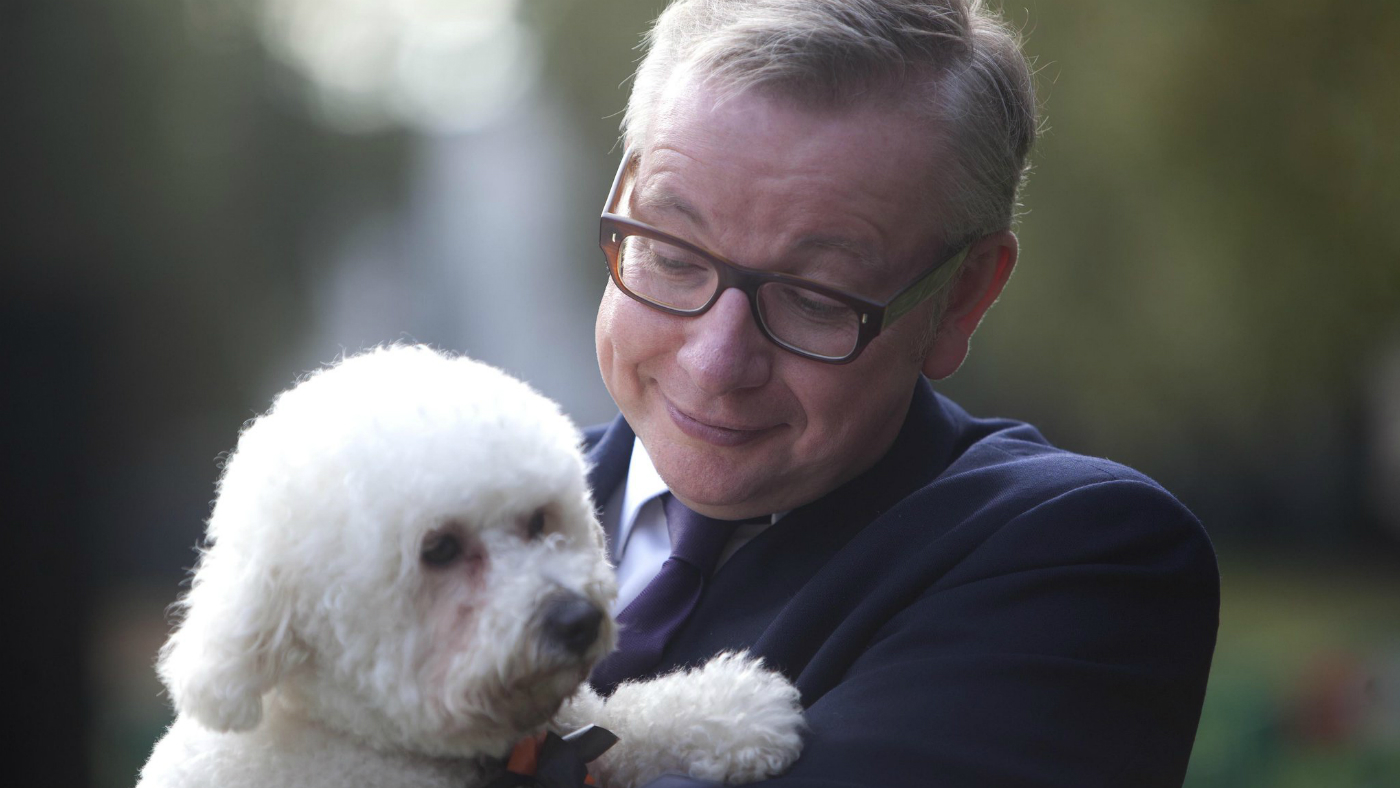Is Michael Gove right to outlaw electric shock collars for dogs?
Activists welcome the ban on electrified training devices in England, but others accuse Environment Secretary of a policy U-turn

A free daily email with the biggest news stories of the day – and the best features from TheWeek.com
You are now subscribed
Your newsletter sign-up was successful
The government has announced that electric shock collars for cats and dogs will be outlawed in England, a move that has prompted critics to accuse Environment Secretary Michael Gove of a dramatic reversal of policy.
Shock collars, which are often sold as training devices, can deliver “up to 6,000 volts of electricity or spray noxious chemicals to control animals’ behaviour”, reports the BBC.
Gove says this causes unacceptable “harm and suffering” to the animals. He is expected to reveal the move to ban the sale of the devices later this week after a public consultation overwhelmingly backed outlawing them, Metro says.
The Week
Escape your echo chamber. Get the facts behind the news, plus analysis from multiple perspectives.

Sign up for The Week's Free Newsletters
From our morning news briefing to a weekly Good News Newsletter, get the best of The Week delivered directly to your inbox.
From our morning news briefing to a weekly Good News Newsletter, get the best of The Week delivered directly to your inbox.
The paper says that use of the collars has already been banned in Wales. Earlier this year Scotland began moves to follow suit.
Animal charities, many of which campaigned for the ban, are welcoming the move.
Dr Rachel Casey, director of canine behaviour and research at the Dogs Trust, said: “Scientific research has demonstrated that electronic devices which deliver an aversive stimulus have a negative impact on dog welfare, so this ban will have a major positive impact for dogs in the UK.”
But proponents of the collars have hit out at what they describe as a “complete 180” by Gove, whose department said in February – in a letter obtained by the Press Association – there was “little research” to support a ban.
A free daily email with the biggest news stories of the day – and the best features from TheWeek.com
The document, which was sent to the Royal Veterinary College, claimed that the scientific evidence that Gove’s department had commissioned was “not strong enough to support a ban”.
Dog trainer and campaigner Jamie Penrith told The Independent that Gove had made an “abrupt” decision. “It’s a complete 180,” Penrith said.
Ian Gregory, a lobbyist for pet collar manufacturers, argues that the collars help prevent some of the 300,000 deaths of cats in road accidents. He says that animal charities are exaggerating the impact of the shock delivered by collars, especially when compared to the legal practice of cattle-prodding.
“The anecdotal problems reported with pet collars can be resolved by product standards rather than by banning a proven technology,” he said.
“The hundreds of thousands of dog owners using remote trainers do not deserve to be criminalised.”